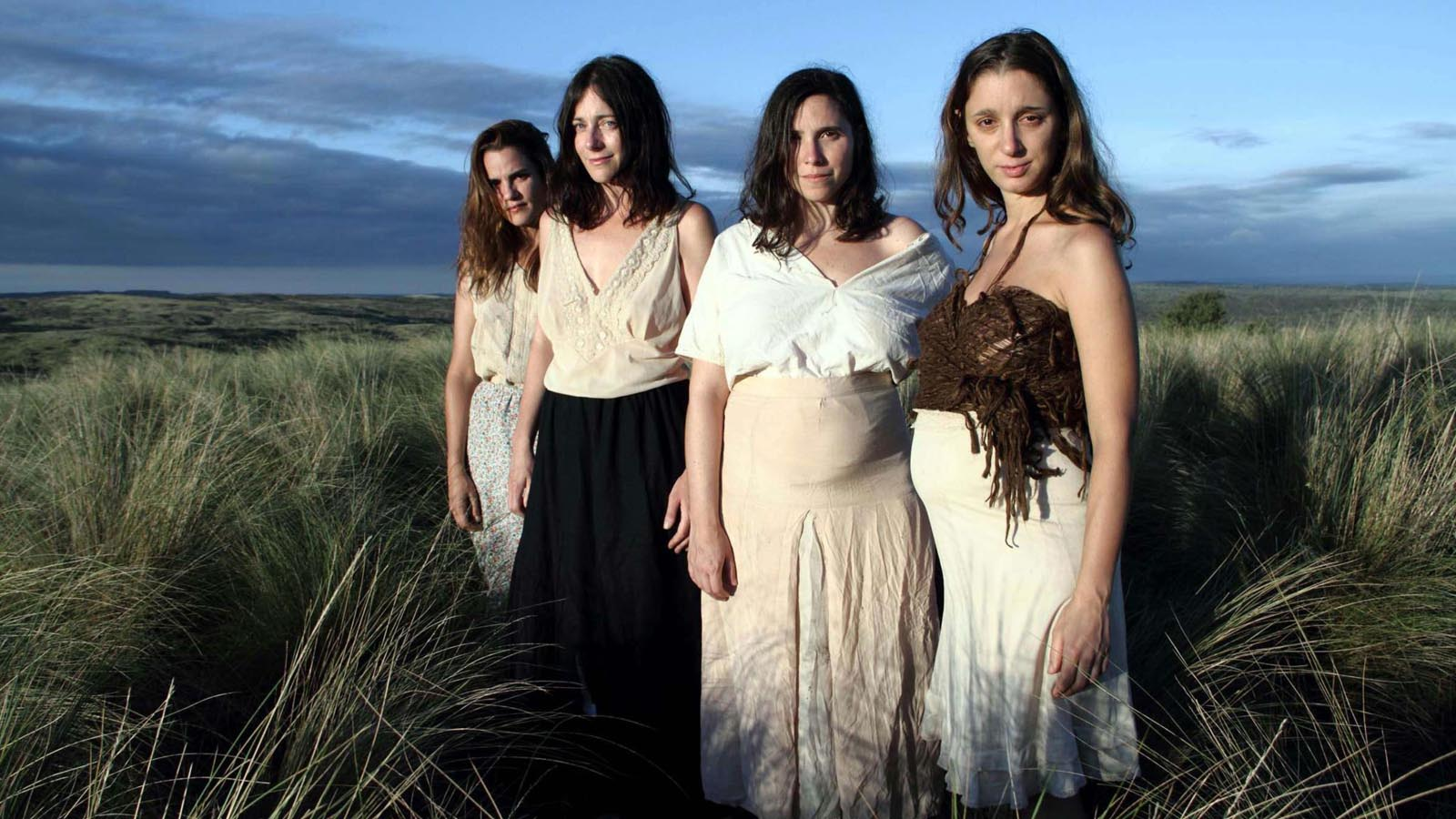Mariano Llinás’s La flor

As Argentine writer and director Mariano Llinás tells Jordan Cronk in the current issue of Cinema Scope, once he’d completed his four-hour Extraordinary Stories in 2008, he did not set out to make a second feature that would run thirteen hours and twenty-seven minutes. What he was actually after was the opportunity to work with Elisa Carricajo, Valeria Correa, Pilar Gamboa, and Laura Paredes, four actresses from the acclaimed theater company Piel de Lava. Over the course of the following nine years, Llinás and his troupe shot La flor, a project that would sprout six episodes, four without endings, another that turns in on itself, and a sixth with no beginning but a definitive end. La flor opens with Llinás himself addressing the audience and sketching a flower-like diagram of the journey to come.
Dispatching to Filmmaker from Locarno, where La flor screened in competition, Daniel Witkin argued that “the performers exert a novel force missing from Llinás’s previous film, making for a second artistic center of gravity to counterbalance the pull of the director’s writerly authority.” At Slant, Keith Uhlich adds that “the admiration-cum-idolization that the more auteurist-minded among us often like to read into the female-obsessed films of, say, Josef von Sternberg or Alfred Hitchcock isn’t only indulged here, but also knowingly dissected and laid bare by Llinás. Such meta self-awareness could easily be insufferable, yet Llinás never loses his sense of playfulness and fun.”
The episodes range from a B-movie—the kind that, according to Llinás, “Americans once were able to make with their eyes closed, and now can’t anymore”—to a musical, then a convoluted spy adventure, an on-set mutiny, a silent remake of Jean Renoir’s A Day in the Country, and an escape from a desert. In his excellent review for the Film Stage, Leonardo Goi presents far more detailed descriptions and then boils it all down to this: “Time, our experience of it, and the ultimate realization that everything in life is fleeting: these are the musings that anchor La flor, and make it its own thing—at once so eccentrically singular, and so deeply human.”
Before segueing into his interview, Jordan Cronk argues that La flor is “above all a film about the art of storytelling itself, its lineage and its ongoing utility.” The film is “not an attempt to redraw the boundaries of storytelling, but rather a creative experiment in rethinking, on a moment-by-moment basis, the nature and capacity of storytelling in a contemporary context.” And throughout, the audience is invited to join in. “Rarely does a film encourage, let alone reward, a multiplicity of viewer interpretations as La flor does,” writes Forrest Cardamenis in the Notebook.



